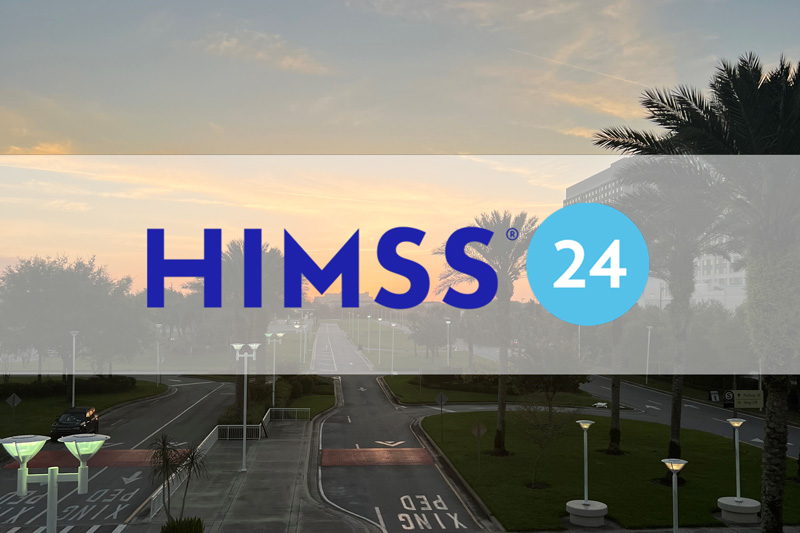Hospitals are well aware of The Joint Commission’s role in regulating safety and operational standards within the healthcare industry. Healthcare organizations that maintain compliance with these standards receive accreditation, a recognition of their commitment to providing safe and effective care of the highest quality and value. The Joint Commission’s comprehensive standards cover a wide range of areas, including patient rights, infection control, medication management, and medical error prevention. Staying compliant with these standards is crucial, as regular surveys are conducted to ensure adherence.
Healthcare is a constantly evolving field, and in 2023, The Joint Commission issued updated guidelines to reflect these changes. For healthcare organizations striving to align with the new standards, data can be a valuable part of their compliance strategy. By adopting an analytics-driven approach to monitor and track performance, hospitals can not only meet the minimum requirements but also exceed the standards set by The Joint Commission. Keep reading to learn more about the new Joint Commission standards and how data can help hospitals in achieving compliance.
Health equity
Starting on January 1, 2023, Joint Commission accreditation requires healthcare organizations to work towards reducing healthcare disparities in their facilities. This includes taking proactive measures to eliminate discrimination, such as:
- Collecting patient race and ethnicity information
- Designating individual(s) to lead health disparities activities
- Providing information about community resources and support services to patients who need them
- Using data to identify health disparities within their patient population
- Developing a written action plan to address such inequities
Given the emphasis on demographic data collection and analysis in the new standards, hospitals looking to stay compliant can significantly benefit from a data-informed approach. Using a streamlined solution to collect population health data and transforming it into meaningful insights is critical for hospitals under the new guidelines.
Safety and sentinel events
With safety concerns on the rise in hospitals, the 2023 Joint Commission standards include updated guidelines on safety briefings. Safety regulations focus on sentinel events in hospitals, or patient safety events that result in death, permanent harm, or severe temporary harm. Now, hospitals undergoing Joint Commission surveys are required to provide a short, informal briefing regarding potential safety concerns or incidents since the last survey visit. These include workplace violence, fire or smoke emergencies, and any other emergency or safety issues the surveyors should be aware of. Additionally, the new standards also include an updated definition of sexual abuse and assault, both considered sentinel events.
To aid hospitals in effectively tracking sentinel events and safety concerns, a robust data collection and analysis strategy is essential. Having a solution that integrates operational and clinical data into a streamlined repository can help hospitals monitor safety issues across the enterprise. Furthermore, a powerful data solution can help with generating reports and graphs to communicate trends across to both internal staff and Joint Commission surveyors. When sentinel events are reported, hospitals are required to conduct a Root Cause Analysis (RCA) to understand why such errors or emergencies occurred. Solid data can empower hospitals to identify the underlying causes more effectively, helping them stay compliant with accreditation standards.
Antibiotic stewardship
The Centers for Disease Control and Prevention reports at least 2.8 million antibiotic-resistant infections annually, causing more than 35,000 deaths. Given these staggering figures, The Joint Commission updated its standards for 2023 to emphasize antimicrobial stewardship. The new standards recommend that hospitals establish antibiotic stewardship as an organizational priority, allocating financial and staffing resources and designating a staff physician or pharmacy leader to focus on this issue.
With an increased focus on this initiative, hospitals are now required to track data on antibiotic usage and efficacy, reporting this information to a national healthcare safety organization. For hospitals to stay in line with The Joint Commission’s new standards, collecting and analyzing data on antibiotic use will be critical. Having a robust analytics program in place that measures pharmacy and lab data will help hospitals streamline their antibiotic data processes.
Conclusion
The Joint Commission’s standards continue to evolve alongside the changing healthcare landscape and hospitals that want to stay accredited need to keep up. A strong data-driven strategy, supported by analytics solutions, can help hospitals efficiently track KPIs and understand if they are meeting standards. Joint Commission surveys can be incredibly stressful and time-consuming for hospitals, but with a data-driven approach, they don’t have to be. Armed with data, healthcare organizations can confidently present the evidence needed to meet and exceed the evolving accreditation process for The Joint Commission.
- Why We’re Best in KLAS—Again! - February 7, 2024
- Building a Greener Healthcare System with Data Analytics - January 22, 2024
- Hospital Finance Predictions for 2024 - January 8, 2024






